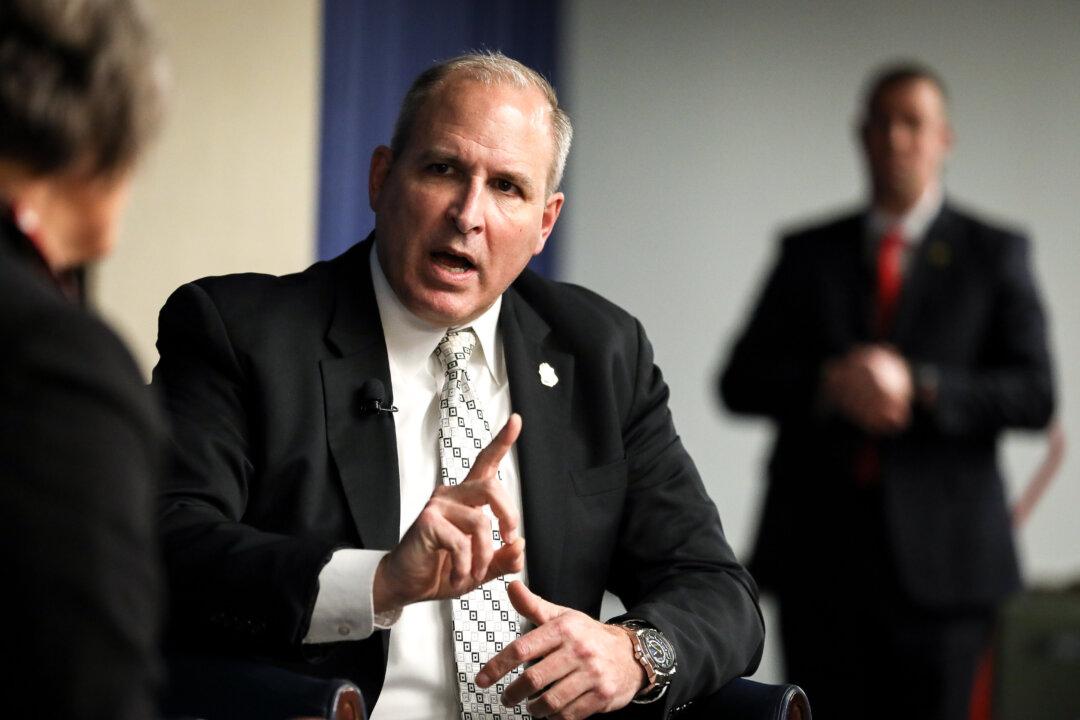WASHINGTON—Former Acting Customs and Border Protection (CBP) Commissioner Mark Morgan left his role at noon on Jan. 20. He had been in the position since early July 2019. During the final months of the Obama administration, Morgan also served as the Border Patrol chief.
Morgan spoke to The Epoch Times about the flurry of border security-related executive orders and memos issued by President Joe Biden and his Department of Homeland Security (DHS). These include temporarily suspending deportations of illegal aliens, reversing President Donald Trump’s ban on travel from terror-prone countries, halting border wall construction, stopping the addition of asylum-seekers to the Migrant Protection Protocol program, preserving the Deferred Action for Childhood Arrivals (DACA) program, and releasing a sweeping immigration package to Congress that includes amnesty for millions of illegal immigrants.





